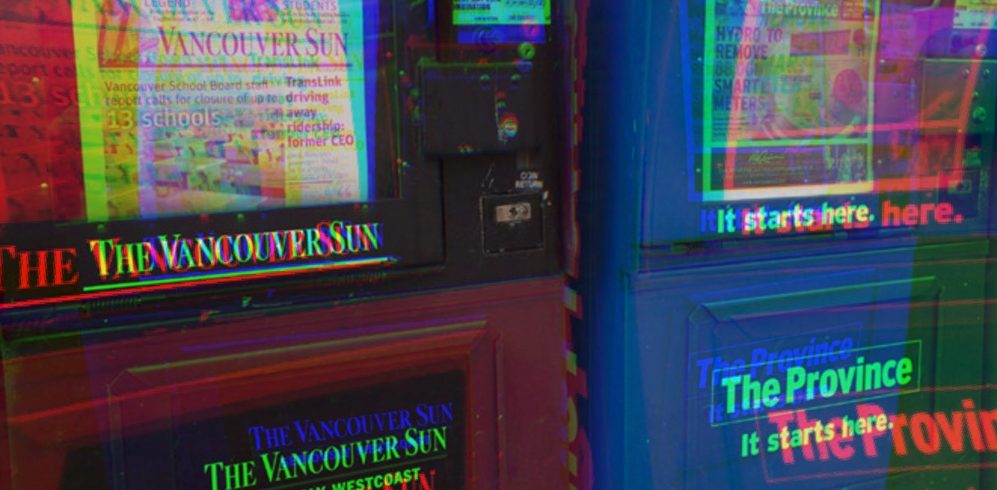
Opinion pieces carrying bylines of senior officials at the University of British Columbia have been featured prominently in the print and online platforms of the Vancouver Sun this fall. There have been four op-eds in the newspaper in September about either UBC’s Covid response or, in one instance, the university’s new Indigenous Strategic Plan. Each has been identified simply as “opinion.”
What was not disclosed to readers was that the op-eds were published as part of an arrangement in which UBC agreed to purchase between $10,000 to $15,000 in advertising from Postmedia Inc., which owns the Vancouver Sun and Province newspapers.
The arrangement also covered the placement of “news content” and seems to have resulted in the reporting of at least one positive news story about UBC, which also ran with no disclosure.
A UBC document obtained by Canadaland outlines the terms of the “Media Partnership Strategy — Back to School 2020” between the university and Postmedia. In addition to the op-eds, a news report about the benefits of online education, published on September 2 in both the Sun and Province, fits with the topic and date suggested in the UBC document.
Under the heading “UBC expectations,” the document described “five op-eds placed and three stories produced and published in Vancouver Sun/Province during the first two weeks of September.”
The strategy document also laid-out UBC’s hope that the stories purchased in Postmedia newspapers would be picked-up by other outlets. Under the heading “Additional Strategies” a bullet point lists “Targeted pitching of key visual stories to Global News.” Under the heading “Success Metric” is included a goal of “One hit on CBC Early Edition or other talk radio shows.”
The draft UBC document explained that a traditional back-to-school campaign may have been seen as “disingenuous given the current context” of COVID-19.
“Partnering with Postmedia will assist the university in ensuring our key audiences — parents, government, donors, and VIPS — have insight into the benefits of online education and our plans around virtual orientation. Postmedia’s platform also offers an opportunity to engage Toronto/National audiences around UBC’s Back to School approach,” it explained.
In addition to the advertising buy, UBC stated that it would provide Postmedia with advance access to university-related stories “to enable day-of reporting.” As well, access to senior officials and university president Santa Ono for interviews would be part of the strategy.
Four op-eds, published between September 1 and September 12 in the Vancouver Sun, match up with the topics and dates specified in the document. An op-ed on September 1, about the measures UBC was implementing for online education this fall, was followed a day later with the news story on the same topic by a Postmedia reporter.
A planned meeting in August between a senior UBC communications official and Valerie Casselton, managing editor of the Sun and the Province, to discuss the content, was outlined in the document.
Casselton did not respond to requests for comment. Harold Munro, editor-in-chief of the Sun and Province, and Phyllise Gelfand, vice president of communications at Postmedia, also did not respond to requests.
Kurt Heinrich, the senior director of media relations at UBC, says the university “publishes and pitches” stories to media outlets each year in advance of the return to school.
“Those stories outline various aspects of the educational experience and are written to provide students, parents, caregivers, and the community important information about the university and its role in the community,” says Heinrich, in an email. “Given the changes to the campus environment and student experience due to COVID-19, we felt a new approach was warranted this year,” he adds.
“It’s also important to note that the Vancouver Sun maintained, at all times, the right to edit or refuse the submissions in keeping with its editorial policy and to solicit counterpoint content from other authors,” explains Heinrich.
The UBC document named numerous staff members involved in the media strategy and assigned “authors” to the op-eds, including Heinrich, for pieces that ultimately ran under the bylines of senior university officials, including President Ono.
“UBC executives, like executives in all major organizations, have a wide range of responsibilities and it’s not uncommon for them to receive communications support,” says Heinrich.
Paid content and formal partnerships between private or public sector entities and a media outlet are not unusual, as the industry seeks to find new sources of revenue. However, many media experts say there needs to be transparency when this type of content is published, such as a clear notification to readers that it has been sponsored.
“Content created to serve the private interests of those paying for its publication is not journalism,” stated a 2015 discussion paper released by the Canadian Association of Journalists’ ethics advisory committee.
“It is because of the confusion, and the data that suggests users do not differentiate between journalism and this content, that news organizations critically need to create strong and consistent guidelines to separate this content from its journalism,” the committee wrote.